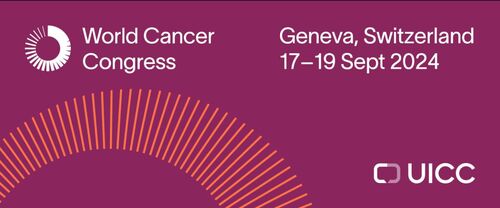Crossmark
Crossmark is a multi-publisher initiative from CrossRef to provide a standard way for readers to locate the latest version of published content. By applying the Crossmark logo, our journal is committing to maintaining the content it publishes updated, and to alerting readers to changes when they occur.
Clicking on the Crossmark logo will tell you the current status of a document and may also give you additional publication record information about the document.
Corrections and retractions
Corrections
Cancer Prevention and Care will issue corrections or other post-publication updates when there are expressions of concern regarding published content. We wish to make peer-review publishing edifying, and hence, we consider it to be our responsibility to keep the readers informed of any possible changes that might occur to published material. Cancer Prevention and Care adheres to COPE guidelines for corrections and retractions.
Corrigendum
A corrigendum refers to a change in a published article, that the authors consider of critical impact. Authors wishing a corrigendum on their article are advised to contact the editorial office and explain the situation, though the editors of the journal are responsible for the final decision on whether the change essentially affects the article's meaning or conclusions. Cases that are typical examples of corrigendum requests are:
▫ Errors in table numbers or figures – given that they do not alter the conclusions of the article.
▫ Errors in statistical data that do not alter the article's conclusions.
▫ When the list of authors needs to be updated or in case authors have been omitted or mistakenly accredited.
▫ Reference lists that need to be updated or in case authors have omitted to cite material used during their research.
When proceeding with corrigenda, the original uncorrected articles remain in place, with an additional note stating that the articles have further corrections and the corresponding DOI numbers.
Erratum
An erratum is published when errors occur in the article by the publisher during the production process. In case these errors are not tracked before publication and play a significant role in the article's comprehension or meaning, authors can contact the editorial office and require the publication of an erratum. When proceeding with an erratum, the original uncorrected articles remain in place, with an additional note stating that the articles have further corrections and the corresponding DOI numbers.
Typographical errors that do not alter the meaning of the articles are not considered as significant reasons to proceed with errata or corrigenda.
*Author name changes on published articles
Since there are a variety of reasons why an author may change their name in the course of their career and wish to update their published articles to reflect this change, our journal will follow the authorship guidelines issued by COPE updating articles where authors make requests for their own name change, without the requirement for an accompanying correction notice. Pronouns accompanying author statements will also be updated as part of the name change if required. Consequently, all metadata, pdf, and HTML versions, as well as content supplied to indexing services, will be updated accordingly by resupplying them with the new article versions.
Retractions
Cancer Prevention and Care abides by COPE guidelines and recommendations in cases of potential retraction. Editors will consider retraction of an article if there is evidence that findings are unreliable or have been previously published elsewhere, if the article constitutes plagiarism that was not detected in previous checks, in case of data used in the article without the appropriate authorization, or in case of unethical research on human subjects, or if a major competing interest is not stated properly.
Retractions are clearly identified and linked to the original article, state the reason of retraction using simple and objective language and are published as soon as possible to minimize the potential use of unreliable data.
Clicking on the Crossmark logo will tell you the current status of a document and may also give you additional publication record information about the document.
Corrections and retractions
Corrections
Cancer Prevention and Care will issue corrections or other post-publication updates when there are expressions of concern regarding published content. We wish to make peer-review publishing edifying, and hence, we consider it to be our responsibility to keep the readers informed of any possible changes that might occur to published material. Cancer Prevention and Care adheres to COPE guidelines for corrections and retractions.
Corrigendum
A corrigendum refers to a change in a published article, that the authors consider of critical impact. Authors wishing a corrigendum on their article are advised to contact the editorial office and explain the situation, though the editors of the journal are responsible for the final decision on whether the change essentially affects the article's meaning or conclusions. Cases that are typical examples of corrigendum requests are:
▫ Errors in table numbers or figures – given that they do not alter the conclusions of the article.
▫ Errors in statistical data that do not alter the article's conclusions.
▫ When the list of authors needs to be updated or in case authors have been omitted or mistakenly accredited.
▫ Reference lists that need to be updated or in case authors have omitted to cite material used during their research.
When proceeding with corrigenda, the original uncorrected articles remain in place, with an additional note stating that the articles have further corrections and the corresponding DOI numbers.
Erratum
An erratum is published when errors occur in the article by the publisher during the production process. In case these errors are not tracked before publication and play a significant role in the article's comprehension or meaning, authors can contact the editorial office and require the publication of an erratum. When proceeding with an erratum, the original uncorrected articles remain in place, with an additional note stating that the articles have further corrections and the corresponding DOI numbers.
Typographical errors that do not alter the meaning of the articles are not considered as significant reasons to proceed with errata or corrigenda.
*Author name changes on published articles
Since there are a variety of reasons why an author may change their name in the course of their career and wish to update their published articles to reflect this change, our journal will follow the authorship guidelines issued by COPE updating articles where authors make requests for their own name change, without the requirement for an accompanying correction notice. Pronouns accompanying author statements will also be updated as part of the name change if required. Consequently, all metadata, pdf, and HTML versions, as well as content supplied to indexing services, will be updated accordingly by resupplying them with the new article versions.
Retractions
Cancer Prevention and Care abides by COPE guidelines and recommendations in cases of potential retraction. Editors will consider retraction of an article if there is evidence that findings are unreliable or have been previously published elsewhere, if the article constitutes plagiarism that was not detected in previous checks, in case of data used in the article without the appropriate authorization, or in case of unethical research on human subjects, or if a major competing interest is not stated properly.
Retractions are clearly identified and linked to the original article, state the reason of retraction using simple and objective language and are published as soon as possible to minimize the potential use of unreliable data.
We process personal data collected when visiting the website. The function of obtaining information about users and their behavior is carried out by voluntarily entered information in forms and saving cookies in end devices. Data, including cookies, are used to provide services, improve the user experience and to analyze the traffic in accordance with the Privacy policy. Data are also collected and processed by Google Analytics tool (more).
You can change cookies settings in your browser. Restricted use of cookies in the browser configuration may affect some functionalities of the website.
You can change cookies settings in your browser. Restricted use of cookies in the browser configuration may affect some functionalities of the website.


